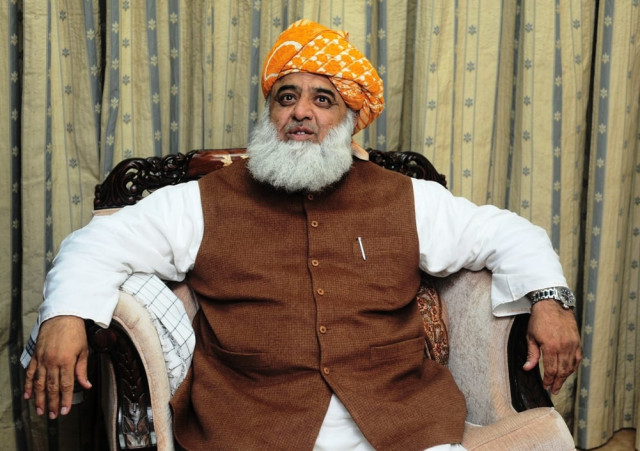A shakier coalition
The announcement by the head of the JUI-F, Maulana Fazlur Rahman, could well make for a decidedly shakier coalition.

The party’s chief has said that the decision came after one of its nominees to the federal cabinet, science and technology minister Azam Khan Swati, was sacked by the prime minister. Mr Swati had in recent days become embroiled in a public feud with religious affairs minister Hamid Saeed Kazmi over the latter’s apparent mishandling of the Hajj this year. Both ministers threatened each other with lawsuits and it seemed that efforts to stop the quarrel did not bear fruit because they kept issuing statements against each other for a number of days. The JUI-F chief’s public anger and the reason he cited for his party quitting the government would suggest that he was unhappy at not being taken into confidence before his party’s minister was sacked from the cabinet. However, there may be more to this than meets the eye given that one would expect the JUI-F — one of the leading religious parties in parliament and the Senate in terms of numbers — to covet the religious affairs ministry. There is also talk that the party may not only have wanted the ministry but its bifurcation into religious affairs and Hajj. If this is indeed true, then it helps explain the potshots that were taken by Mr Swati against Mr Kazmi.
In any case, given these developments, the repercussions could impact the government’s position in parliament and by extension its ability to govern effectively (though some would say that this in any case has been severely compromised by many of the ruling party’s own actions). For instance, the MQM, especially after the Sindh home minister’s pointed remarks against it on December 13, is not all that happy with its senior ally, the PPP, either.
Published in The Express Tribune, December 15th, 2010.















COMMENTS
Comments are moderated and generally will be posted if they are on-topic and not abusive.
For more information, please see our Comments FAQ